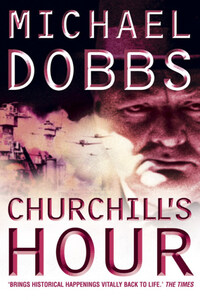London, Saturday 1 October 1938.
A story has to start somewhere. Ours begins on a disgruntled day in autumn, in the unsuspecting year of 1938.
It could have begun a generation earlier, of course – in 1914, as the British Expeditionary Force whistled its way off to war with the Kaiser. Or 1918, when the few that were left dragged themselves back. There again, we could have started a century earlier when the hooves of the Emperor Napoleon’s cavalry turned the continent of Europe into a muddy dying place that stretched from the tumbling rivers and mountains of Spain to the gates of imperial Moscow. Extend the imagination just a little and we could go back – why, a thousand years, to that day on a hill overlooking the coast of Sussex when King Harold raised his eyes to view his enemy in full retreat, and got nothing but an arrow for his efforts – or another thousand years still, to the time of the great Julius and his invasion fleet as they landed a little further along the shore. We could go back to almost any day, in fact, and still it would be the same. Johnny Foreigner was a pain.
But this story starts on the Bayswater Road, and not with a King or an invading Emperor but an undersized figure named McFadden. He is a gentlemen’s barber, and a good one. One of the best, in fact. A man with a sharp eye for detail and a soft hand, a punctilious sort of fellow both by his nature and by his trade. Yet McFadden is late, which is unusual for him. And he shouldn’t be late, not today, for this is the day he has agreed to be married.
He has dressed as best he can in the circumstances, but it doesn’t quite work. The heavy wool jacket is meant for someone at least ten pounds lighter and the button at his belly keeps coming undone. The rose in his buttonhole also refuses to co-operate. It has slipped away from its pin and is threatening to jump. McFadden mutters a dark spell under his breath and makes running repairs, hastening on his way, which isn’t easy with his pronounced limp. We haven’t mentioned his limp, but he has something badly wrong with his hips, which are out of line, and when he hurries he has to swivel his entire body in order to propel his right leg forward. So McFadden never likes to hurry. This isn’t working out as he had hoped.
He had planned to make the journey by underground train from his home near the Piggeries in North Kensington to the register office at Caxton Hall, but when he turned up at the station he found nothing but an untidy notice pasted on the gates – ‘closed for urgent structural repairs’. A minor deception, so far as official pronouncements went. The whole of London knows the truth. The station roofs are being reinforced so they can be used as bomb shelters.
Ah, but there isn’t going to be any bombing.
They have the Prime Minister’s word on that. He has flown back from Munich just the day before to announce that he has brought with him ‘peace with honour, peace for our time’. Mac doesn’t believe him, of course. Another cholemi, goddamn lie. Ever since the mohel had turned him over on the kitchen table and assured him that it wouldn’t hurt, moments before cutting the end off his prick, he has known that the System always lies. (Not that he can remember anything about his circumcision, of course, but his elder brothers Yulek and Vovek never spared him the more gruesome details. He had screamed for hours afterwards.) Mac knows about lies. Lies have followed him like a shadow wherever he has gone and were usually there to greet him when he arrived – in Poland, in Germany, and particularly all those years in Russia. Now he is in England, and the only difference in Mac’s mind between Mr Neville Chamberlain and the psychopath Stalin is that the Englishman went to a proper school and has learned not to scratch his balls in public – although, come to think of it, Mac has never seen photographs of Stalin holding his own umbrella, there is that difference, too.
His leg is hurting like hell. It’s always giving him gyp – he can’t remember a time when the bloody thing wasn’t on fire – and the damper it gets the more it burns, deep inside, right to the marrow of the bone. So Mac decides to take a short cut across the park. Not one of his better decisions. The flat expanse of Hyde Park is usually serene and calm, but something has happened. Instead of green acres, Mac is greeted by a bubbling chaos of mud. Like Judgement Day. On all sides the earth has been torn open where workmen with pickaxes and mechanical shovels have hacked a chaotic maze of holes into the thick London clay. Trenches everywhere. ‘Air Raids – Public – For The Use Of’ – hah! These bloody holes can’t offer protection from the rain let alone from fat Goering’s bombs. They aren’t finished and already they’ve begun to fill with water, sullen and brown. Typical English idiocy. Treating war like a game of cricket. Something to be called off if it rains.














